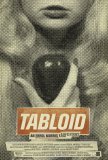Tabloid (United States, 2010)
July 20, 2011
Errol Morris may be unique among high profile, veteran documentary filmmakers in that his primary interest is in the people he interviews. His movies are real-life character studies not pseudo narratives, political rants, or "serious" examinations of "important" issues. Thus far, he has used his cinematic canvas to paint compelling portraits of the likes of Stephen Hawking, Fred A. Leuchter Jr. (a.k.a. "Mr. Death"), and Robert McNamara. He has turned his lens on the famous, the infamous, and the unknown. His latest subject is among his most fascinating: Joyce McKinney, an ex-beauty queen whose exploits during the late 1970s made her a British tabloid favorite. Using his interrotron (a device designed to put the viewer in the interviewer's place) to give a more intimate perspective of Joyce, Morris allows her voluptuous personality, bright smile, and ready wit to captivate.
Of course, as Rashomon showed, truth is an elusive thing and different people may have disparate interpretations of the same series of facts. Morris' goal with Tabloid is not to discredit or prove Joyce's version of events. He allows her to speak for herself then, to provide balance, gives weight to the opinions of other involved individuals and observers. The viewer is left with no clear indication of what really happened, but with a vibrant portrait of a compelling character. That's what Morris is after. Asking questions about the nature of truth are a secondary benefit.
The story begins in 1977. Joyce, a former Miss Wyoming, fell in love with a nondescript Mormon named Kirk Anderson who claimed to reciprocate her affection. However, before they could be married (if marriage was ever his intention), he left on a missionary trip to the U.K. Joyce caught up with him there and (depending on who you believe) either convinced him to come away with her or kidnapped him. They spent three days in an isolated cabin having sex, with him apparently tied spread-eagle to a bed. Joyce claimed this was her method to "deprogram" the Mormon, to free him from the pernicious influence of the cult that had brainwashed him. The Law looked on it as something different. She was tried but jumped bail and fled to the United States before being sentenced. (The U.K. elected not to opt for extradition.) Details about her past - that she may have been a prostitute specializing in S&M and that she may have posed for hundreds of nude photos - leaked into the British tabloids. Then, years later, when her name had been forgotten, she re-entered the press when she paid $150,000 to have her dead dog "Booger" cloned. (She now has five "Boogers.")
To hear Joyce tell it, everything she did was for love. The sex was consensual. The rumors of prostitution were untrue and the photos were fakes (her head pasted onto the naked body of another woman). And, as she stares into the interrotron and presents her case with an easy manner and a smiling face, we believe her. No one could possibly be this at ease and not be telling the truth, could they? Then we remember Rashomon and are forced to append to the truth: "as she sees it."
Morris dutifully provides other perspectives of the events, including that of a private pilot who flew Joyce to London in 1977 and that of a tabloid reporter who conducted an exclusive interview with her after her flight from England. There is general agreement regarding most of the facts, but the differences come in the interpretations. Joyce's kidnapped Mormon refused Morris' request to be interviewed and her mysterious accomplice on the 1977 escapade died in 2004 and was therefore unable to provide his point-of-view.
The movie's title is Tabloid, but it pays no more than cursory lip-service to the feeding frenzy of the paparazzi that the Joyce McKinney story engendered. The movie is not about the deceptive and immoral tactics of such publications when there are sordid secrets to be uncovered. Joyce demonizes the tabloids, and our natural distrust of such "rags" (despite the fact that everyone seems to read them) makes us sympathetic to her position. But on more than one occasion, we are forced to wonder whether she doth protest too much.
The lack of an unambiguous narrative does little to detract from Tabloid's ability to arrest the attention, and that's because the "Case of the Manacled Mormon" is only the means by which we are provided with a portal into Joyce's reality. Since a meticulous, third-person tally of events is not possible, Morris gives us what he can and allows us to draw our own conclusions. The film arrives in theaters at a propitious time with the ambiguity of the Casey Anthony trial swirling at the same time that the rotten underbelly of Rupert Murdoch's U.K. tabloid empire has been exposed.
Unlike many of his contemporaries, Morris is not a stylish documentarian. He's old-school, preferring talking head interviews to splashy visuals and expensive dramatic recreations. Someone like Joyce, however, is so lively and compelling that viewers are not apt to lose interest or become distracted during the 90 minutes when her story is being told. The humor - and there's enough of it that Tabloid could be categorized as a comedy - is unforced, arising as it does out of these truth-is-stranger-than-fiction circumstances. Joyce is all the razzle-dazzle Morris needs to make Tabloid a compulsively watchable motion picture.
Tabloid (United States, 2010)
Cast: Joyce McKinney
Screenplay:
Cinematography: Robert Chappell
Music: John Kusiak
U.S. Distributor: IFC Films
U.S. Release Date: 2011-07-15
MPAA Rating: "R" (Sexual Content, Nudity, Profanity)
Genre: DOCUMENTARY
Subtitles: none
Theatrical Aspect Ratio: 2.35:1

Comments